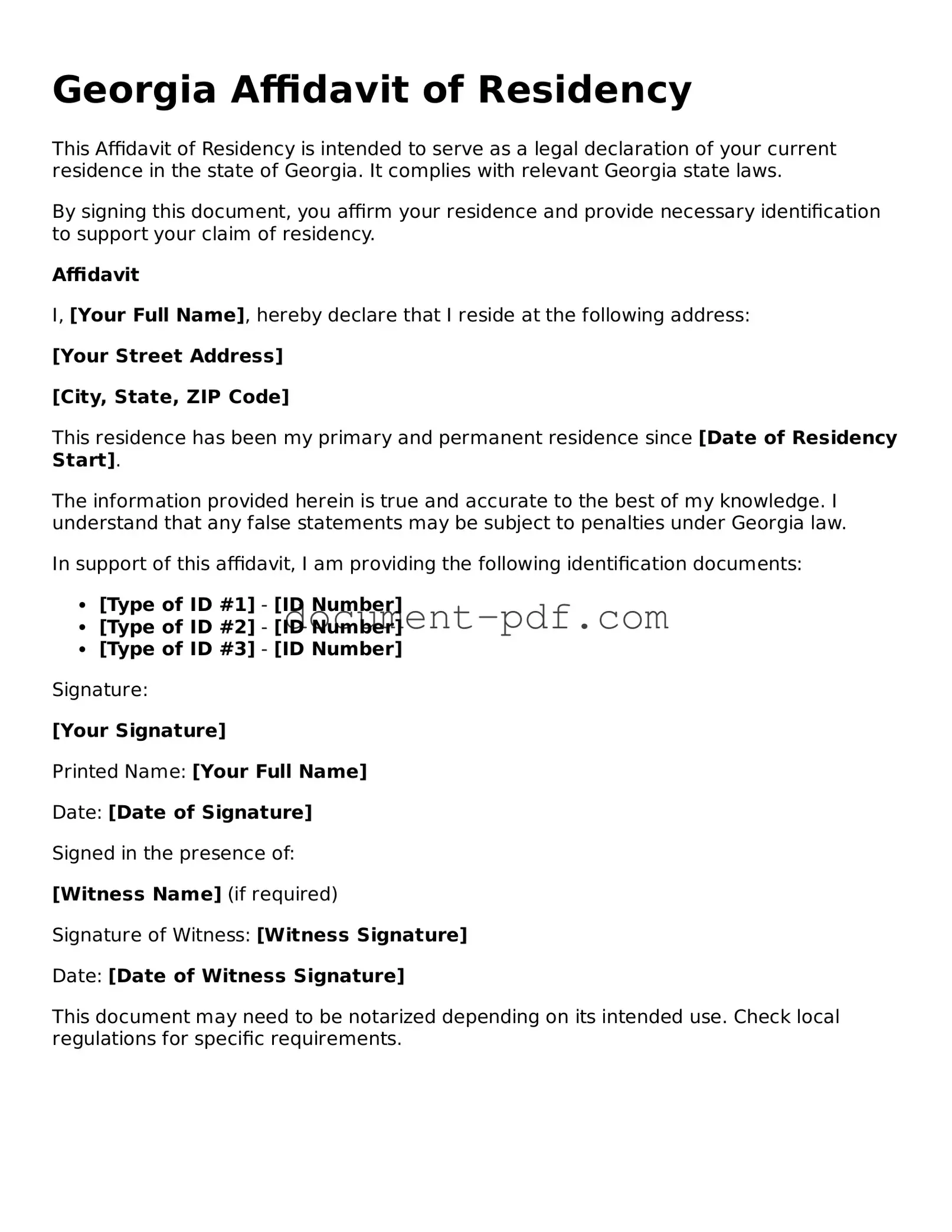The Georgia Affidavit of Residency form shares similarities with the Affidavit of Identity. Both documents serve to confirm an individual's identity and residency. The Affidavit of Identity is often used in situations where proof of identity is required, such as when applying for a driver's license or opening a bank account. Like the Affidavit of Residency, it requires a sworn statement and may need to be notarized to ensure its validity.
Another document that resembles the Georgia Affidavit of Residency is the Lease Agreement. A Lease Agreement outlines the terms under which a tenant rents property from a landlord. While the Affidavit of Residency confirms where a person lives, the Lease Agreement provides the legal framework for that residency. Both documents can be used to establish proof of residence, but the Lease Agreement is more formal and includes specific terms regarding rental payments and property usage.
The Voter Registration Form is also similar to the Affidavit of Residency. This form requires individuals to provide proof of residence to register to vote. Both documents aim to establish where a person lives, which is crucial for determining voting eligibility. The Voter Registration Form typically requires less detail than the Affidavit of Residency but serves a similar purpose in confirming residency for civic duties.
The Utility Bill serves as another comparable document. Utility bills, such as those from water, gas, or electricity companies, often include the name and address of the resident. They can be used as proof of residency, similar to the Affidavit of Residency. While the Affidavit is a sworn statement, utility bills are third-party documents that verify where someone lives through billing records.
The Driver’s License Application form is another document that aligns with the Affidavit of Residency. When applying for a driver’s license, applicants must provide proof of their residency. This can be done through various means, including the Affidavit of Residency. Both documents play a crucial role in verifying an individual's address for identification purposes.
The Homestead Exemption Application is similar as well. This application allows homeowners to claim an exemption on property taxes based on their primary residence. To qualify, applicants must prove their residency, which can be supported by the Affidavit of Residency. Both documents emphasize the importance of establishing a permanent residence for legal and financial benefits.
The School Enrollment Form also mirrors the Affidavit of Residency. Parents or guardians must provide proof of residency when enrolling a child in school. This can include an Affidavit of Residency or other documents that establish where the family lives. Both documents ensure that children attend schools in the correct district based on their home address.
The New York ATV Bill of Sale form is a legal document that records the sale and transfer of ownership of an all-terrain vehicle. This form serves as proof of the transaction between the buyer and seller, ensuring necessary details are clearly documented. To facilitate the sale, complete the form by clicking the button below, or visit https://pdfdocshub.com for more information.
The Immigration Affidavit of Support is another document that relates to residency. This form is used to demonstrate that an immigrant has sufficient financial support and a stable place to live. While it focuses on financial backing, it also requires proof of residency, similar to the Georgia Affidavit of Residency. Both forms are crucial in establishing a person's living situation for legal purposes.
Lastly, the Change of Address Form from the United States Postal Service (USPS) is comparable. When individuals move, they can file this form to update their address with the postal service. Although it does not require a sworn statement, it serves the purpose of notifying authorities of a change in residency, much like the Affidavit of Residency does in legal contexts.

